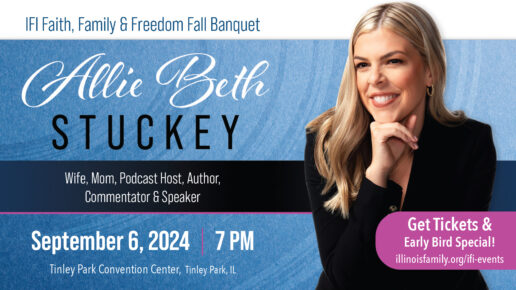
Those of us who are troubled by both premarital sexual activity and by comprehensive sex education should not abide in a state of willful ignorance or complacency about the problem of how to educate our children about sexuality issues.
Far too many teens and young adults raised in Christian homes are adopting worldly views of sexuality. We and our children are immersed in a sex-drenched culture that giddily promotes profligate sexuality. No sex ed curricula will be able to eliminate the pernicious effects of daily exposure to ubiquitous, tantalizing images of and ideas about pre-marital, extra-marital, and non-marital sexual activity in magazines, music, films, television, advertising, and even our public schools. But the difficulty of the challenge is no excuse for acquiescence to the unacceptable curricula offered in many schools.
A truly comprehensive sex ed curriculum will not only include but be centered on the theology of marriage and sexual union. That is the central problem with public school comprehensive sex ed curricula. They omit that which is central to sexual activity: the spiritual core. And it is that dangerous omission that reinforces the dominant cultural presuppositions that vitiate a proper and correct understanding of sexuality: Gnosticism and scientific materialism.
We must teach our children that our bodies are objectively and inextricably connected to our immaterial spiritual natures, which are as real as our physical natures. In the August/September issue of First Things, Robert George, McCormick Professor of Jurisprudence at Princeton University, writes about the two philosophical views of the relationship between the body, mind, and spirit:
The view typically (if often unconsciously) held by advocates of liberal positions on issues of sexuality and marriage is that the person is the conscious and desiring aspect of the self. The person inhabits (or is somehow associated with) a body, certainly, but the body is regarded (if only implicitly) as a subpersonal reality, rather than a part of the personal reality of the human being whose body it is.
. . . The alternate view of what persons are is . . . [that] human beings are bodily persons, not consciences, or minds, or spirits inhabiting and using nonpersonal bodies. A human person is a dynamic unity of body, mind, and spirit. (“What Marriage Is–And What It Isn’t”)
We are working against our culture’s Gnostic and naturalistic presuppositions. Gnosticism teaches that we have two separate natures and that our physical nature is of less importance. One of the outworkings of Gnostic views about the nature of man can be sexual profligacy. If the body is somehow distinct from the essence of the individual, how we use the body becomes insignificant.
Metaphysical naturalism or materialism tells us that all that really exists is the physical, material, measurable universe. It presumes, without proof, that there is no spiritual, non-material plane of existence. This view trivializes our spiritual natures in that it fails to recognize the truth that we are more than matter. We possess spiritual natures that are inextricably united to physical bodies. What we do with our spiritual and physical selves matter enormously to the Creator of the universe. Whereas Gnosticism trivializes the material, scientific materialism trivializes the spiritual. Adopting the view that we are merely material matter makes it more likely that we will view what we do with our bodies as unimportant.
But if humans are created in the image and likeness of God with bodies that are united inseparably from spiritual, eternal natures, then what we do with our bodies is both ultimately and truly spiritual and incalculably important.
Parents must not simply tell their children to refrain from sex until marriage. They must discuss repeatedly in formal sit-down instructional times and informal teachable moments what marriage is. By the time our children reach adolescence they should know that earthly marriage is a picture, a type, an earthly representation of the covenant between Christ and the church. Christ is the bridegroom and the church is His bride. The act that sealed that union was the shedding of Christ’s blood on the Cross. Sexual intercourse is the act that seals the covenant between a husband and a wife. And just as Christ covenants only with His bride, we must share our oath sign or seal-sexual intercourse-with only our spouse. We must teach our children from the youngest ages–in age-appropriate language, of course–that this is an objective reality that the world in its darkness cannot comprehend.
After reading Comprehensive Sex Ed Part I, an IFI reader expressed his concern about virginity pledges–a concern we should all share:
One of the reasons my wife and I have a problem with virginity pledges–although we totally support abstinence before marriage–is that they are very similar to taking a vow, and those teens who are encouraged to make these pledges are not also informed of the seriousness with which God takes vows.
Numbers 30 outlines the laws regarding vows. However, since the majority of Christians don’t take God’s law seriously, they don’t have a problem leading their children into an area in which they could suffer spiritual consequences–beyond the obvious ones–for breaking a vow. By breaking an abstinence/virginity vow, they are not only sinning by fornication, but they are also sinning through the breaking of a vow.
What needs to be promulgated is not the making of vows, but simple obedience to the word of God. If we as families took God’s law more seriously, virginity “pledges” wouldn’t be necessary.
The deep meaning and seriousness of vow-taking and vow-breaking–whether virginity pledges or marital vows–are not adequately addressed within the Christian community.
For more on what marriage and sexual union are, here are four excellent sermons by Dr. Gordon Hugenberger, senior minister of Park Street Church in Boston:
IFI does not want parents either to acquiesce to the comprehensive sex education offered in public schools or to ignore this critical topic. As I wrote in an earlier article, Illinois Family Institute has a counter-cultural pragmatic suggestion for all parents of children in public schools: for just health class, homeschool your children:
Health class is usually a one-semester class taken by sophomores. I know from my eight years of working in a public high school and from putting four children through a public high school that many, probably most, high school students think of health class as a “blow-off” course. Students are familiar with much of the content already, from drug, alcohol, and tobacco use to nutrition and exercise to mental health issues. That leaves sexual matters, and for many parents of faith, information regarding sexuality should never be taught divorced from discussions of faith and morality.
Moreover, teens should not be in co-ed sex ed classes, whether abstinence-based or comprehensive. There are topics that adolescent boys and girls should not discuss together. Co-ed discussions of sexual anatomy and sexual activity break down natural barriers of modesty, which is not to be confused with shame or prudery, and become yet another step in the sexualization of our youth. Co-ed sex education classes further undermine the virtue of modesty that our culture is doing a remarkable job already of undermining.
Separating adolescent boys from adolescent girls for discussions of sexuality reinforces the idea that sexual activity and sexual anatomy are intimate and private. Co-ed classroom discussions about breast development, menstruation, erections, nocturnal emissions, anal sex, and masturbation only serve to break down natural sexual barriers of modesty that cultural institutions should be strengthening.
Christian parents should also teach their adolescent children about birth control–not to encourage them to use it, but rather because all informed human beings should be familiar with this information. It is in this teaching context that parents can fully inform their children about what condoms can and cannot do. They can inform them of the serious health risks of oral contraceptives. And they can inform them about Natural Family Planning.
We are preparing our adolescents for their future married lives. For many, those married lives will include contraception. And for those who believe that artificial means of contraception violate God’s will for marital relations, this is their opportunity to explain their beliefs to their children.
There are myriad curricula available from which to choose and which students would be able to complete in far less time than a school health class would take. In addition, this option would not involve pulling students out of school. Students could complete this work during their evenings or on weekends and have an extra free period during their school day.
Perhaps if enough parents opt to homeschool their students for health class, the decline in enrollment, which would in turn affect staffing, would lead public school administrators to rethink the wisdom of co-ed comprehensive sex education curricula.
If, however, only a few parents opt their children out of health class and enrollment is little affected, at least those students who take an alternative program at home will have escaped yet another attempt at indoctrination.
























